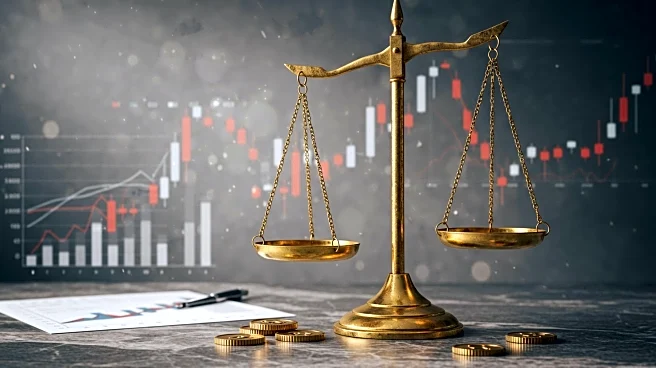What's Happening?
The Federal Reserve is contemplating a potential interest rate cut next month, as indicated by remarks from Jay Powell at the Federal Reserve's economic summit. Powell noted that a softening jobs market could counterbalance the inflationary effects of tariffs imposed by the Trump administration. This development suggests a possible shift in the Fed's policy stance, aiming to address the changing economic landscape.
Why It's Important?
An interest rate cut by the Federal Reserve could have significant implications for the U.S. economy. Lower interest rates typically encourage borrowing and spending, which can stimulate economic growth. This move could benefit industries reliant on consumer spending and investment, such as housing and manufacturing. However, it also raises concerns about potential inflationary pressures and the long-term sustainability of economic growth. Stakeholders, including businesses and policymakers, will closely monitor the Fed's decision and its impact on the broader economic environment.
What's Next?
The Federal Reserve's decision on interest rates will be closely watched by financial markets and economic analysts. If a rate cut is implemented, it could lead to adjustments in monetary policy and influence the strategies of businesses and investors. The Fed's actions may also prompt reactions from political leaders and economic stakeholders, who will assess the implications for fiscal policy and economic stability.
Beyond the Headlines
The potential interest rate cut highlights the ongoing challenges faced by the Federal Reserve in balancing economic growth with inflation control. It underscores the complexities of monetary policy in a dynamic global economic environment. The decision could also reflect broader shifts in economic priorities and the need for adaptive policy measures to address emerging economic trends.










